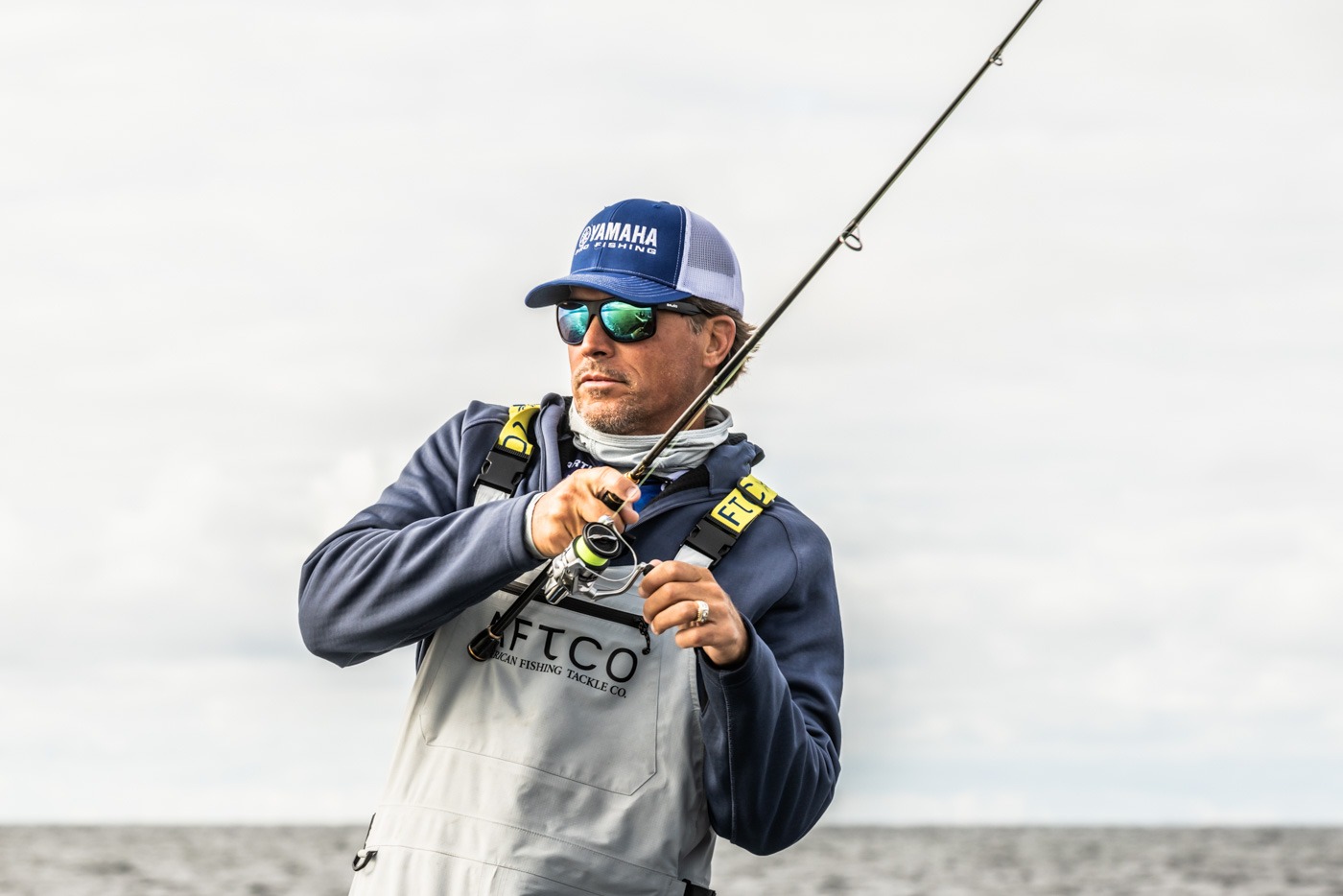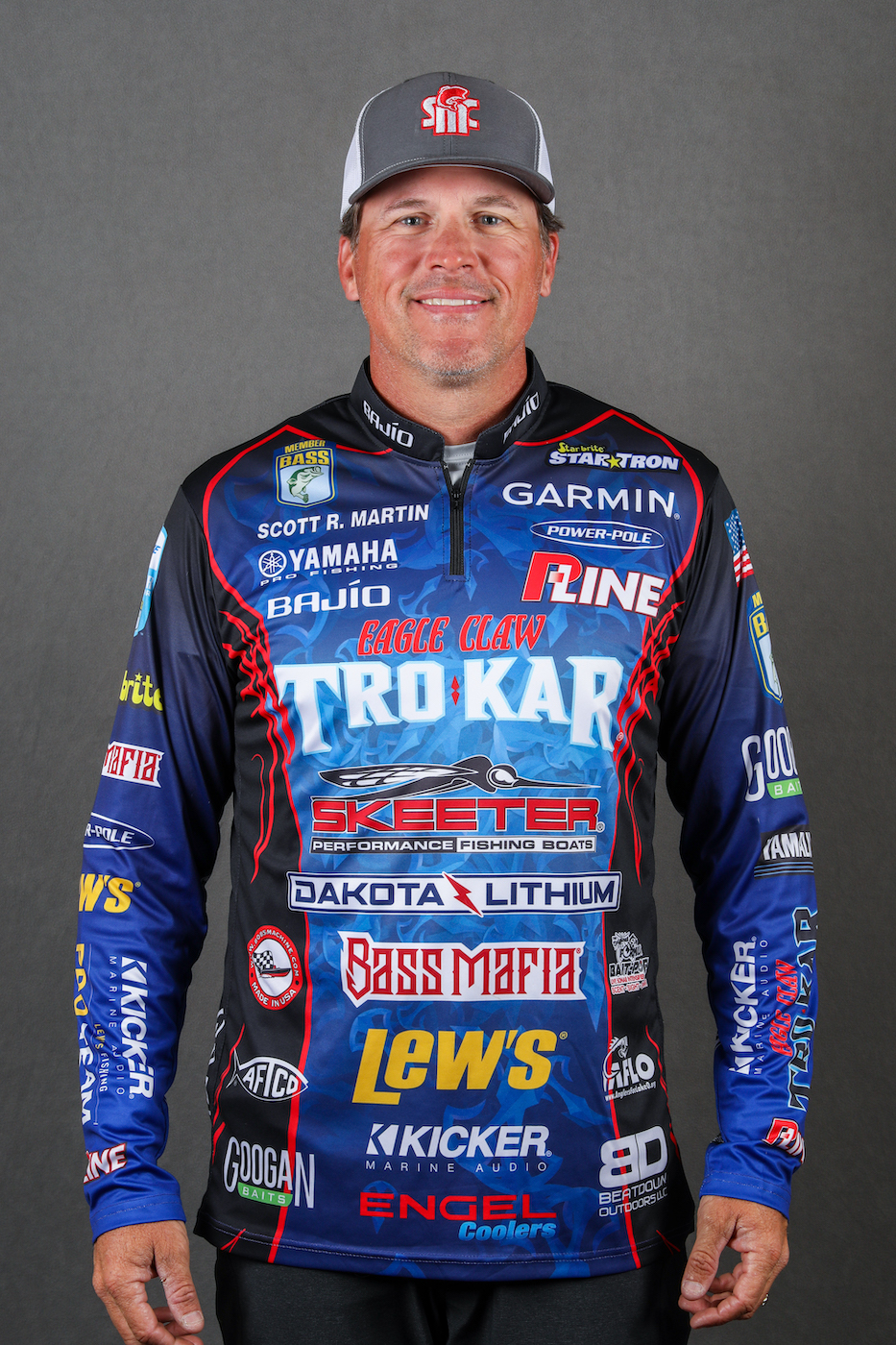
I enjoy every tournament we fish, but I’ll admit, I definitely look forward to the Northern Swing. We’ll fish our final two events of the season up north, and I couldn’t be more eager to get after it.
Living in Florida, our terrain is flat with natural lakes, only largemouth. When I go up north, it’s like a breath of fresh air — literally.
The scenery with the hills and the mountains in the background, the deep, clear water and catching the beautiful smallmouth, it’s just special. It excites me to get up every morning and go fishing.
It’s one of the few times of the year that, no matter how I do in the tournament, it was worth it. There are plenty of times where you go to a tournament and you’re like, “Man, that was a tough event. I don’t want to fish there very many times.”
But this is one time of year when you go up there and you’re like, “This was awesome.”
I can’t wait to get up there. It’s cool in the morning; those fish are aggressive. It’s a lot of decisions, a lot of variables and I like all that.
My personal best smallmouth was a 6-pound, 14-ounce fish and knowing that fish like that are possible just about any day is part of the appeal. But that’s also a big part of my overall approach to these northern smallmouth fisheries. You can’t be satisfied with what you have.
You really have to make a great decision and understand if you’re on a grade of fish you can win with. It’s really easy to fall into the trap of getting a lot of bites, catching a good one every once in a while and then you think, “I can hammer down in this area and go through all these bites. Eventually, I’ll catch five good ones.”
That’s really the wrong approach. You need to find the area that has a completely bigger grade of fish. It seems every year, a certain part of the fishery has a bigger group of fish. They do group up in their size a little more than people realize.
You also have to realize on these northern fisheries, 20 pounds means nothing.
No doubt, rounding up five giant smallmouth is a lot of work, but upstate New York, where the final two Elites will be held, offers absolutely gorgeous weather. Morning lows in the 60s and afternoons in the 70s — this helps alleviate some of the fatigue.
That’s a nice benefit, but you have to be careful. As nice as the weather is, you’re putting in an average of three to four extra hours a day. You’re up at 3:30 a.m., because the sun rises at 4:15 or 4:30.
If you don’t manage your time just right, you can really get yourself squirreled out from being tired. It’s hard to get up at 3:30 or 4 in the morning, be on the water all day until dark, which is about 9 o’clock, get the boat put up and drive back to your place.
Most nights, I’m not in bed before midnight, so you’re working on four hours of sleep a day. That can catch up on you.
You have to be careful with that and pace yourself to some degree. Physically, you might still be in it, but if you get tired mentally, you lose your edge and it just shuts you down.
You might fish through the best place in the lake and not know the fish are there because you’re not mentally dialed in.
I’ll actually take naps in the boat. When it’s hot, I’ll pull up on a shady bank, or just float out there in the middle of the lake and take a micro nap. You wake up, drink a water, take a deep breath and it’s like starting over.
I only get a couple of opportunities to visit these northern fisheries in a year, so I want to make sure I keep myself in prime condition to make the most of it.





